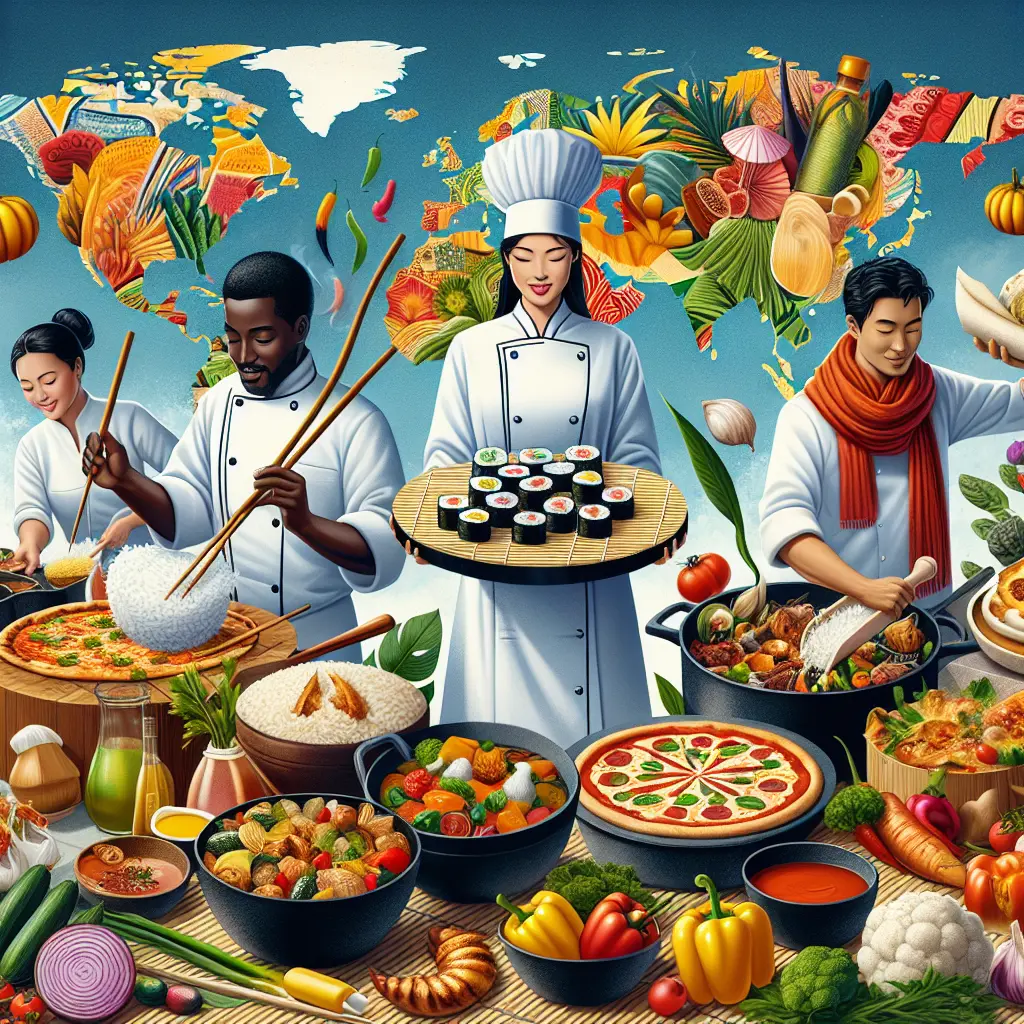
Embarking on a journey through the diverse palette of regional cuisines around the world offers more than just a taste of local flavors. It is a deep dive into the cultural tapestry that defines societies, an exploration that marries culinary heritage with contemporary cooking techniques. This exploration not only satiates our taste buds but also broadens our understanding of the world. As we delve into the intricacies of world cuisines, we uncover traditional foods that tell stories of history, geography, and community.
Exploring Regional Cuisines: A Gateway to Cultural Immersion
Regional cuisines provide a unique lens through which to view the heritage of a community. Each dish, from the spices used to the style of cooking, reflects the environmental conditions, historical interactions, and cultural practices of the area. For example, the robust, spice-laden dishes of Indian cuisine differ vastly from the subtle, meticulous flavors of Japanese preparations, illustrating the diversity in global cooking styles.
In recent years, culinary tourism has become a significant aspect of travel. Tourists are no longer content with merely visiting historical sites and scenic locations; there is a growing trend to explore destinations through their gastronomy travel experiences. This form of tourism not only boosts local economies but also helps preserve culinary heritage and promotes sustainability by utilizing local ingredients.
Incorporating Modern Innovations and Techniques in Traditional Cooking
The fusion of traditional and modern cooking techniques can be seen in how we prepare classic dishes today. For instance, the debate on whether to rinse chicken before cooking has been settled with a strong consensus against it due to health risks associated with spreading bacteria (Source). Moreover, innovative cooking methods like using a high-speed cooking appliance instead of a traditional oven for roasting a chicken can enhance flavor while reducing cooking time (Source).
Kitchen technology plays a pivotal role in modern gastronomy. Products like the Breville Smart Oven Air Fryer Pro revolutionize how we approach traditional recipes, allowing for healthier versions of fried foods by using minimal oil (Source). Similarly, tools like the Meater Plus ensure meats are cooked perfectly, preserving texture and flavor, thus elevating the home cooking experience (Source).
Sustainability in Cooking: Emphasizing Local Ingredients
The focus on local ingredients is not just about freshness; it's also about sustainability and supporting local farmers and producers. The Signature Kitchen Suite’s range of products exemplifies versatility and efficiency, encouraging home chefs to experiment with international dishes while maintaining an eco-friendly kitchen environment (Source).
Moreover, maintaining cleanliness in cooking spaces with innovations such as automatic garbage cans helps prevent contamination and makes cooking more hygienic (Source).
Health and Safety in Modern Cooking
Health considerations have also steered recent trends in food preparation. Indoor air quality monitors have become essential in kitchens to ensure that cooking emissions do not deteriorate indoor air quality (Source). These devices are crucial in households where food exploration and experimentation are routine.
The Role of Media and Technology in Promoting Ethnic Cuisine
With the advent of digital media, ethnic cuisine has found a new platform for global exposure. Food bloggers, vloggers, and culinary influencers play a significant role in popularizing lesser-known cuisines by sharing authentic recipes and cooking techniques online. This not only educates their audience about new food cultures but also preserves and spreads culinary knowledge across borders.
Gourmet Travel: The Future of Gastronomy
As we look to the future, gourmet travel is set to become even more personalized and experience-oriented. Travelers seek authentic, immersive experiences that offer a direct connection with the local culture through its cuisine. This trend points towards an increasing demand for culinary tours, cooking classes, and farm-to-table experiences that highlight the region's culinary heritage.
In conclusion, exploring regional cuisines is much more than indulging in different foods. It is about understanding and appreciating the diversity and richness of food cultures around the world. From utilizing modern appliances and techniques to enhance traditional cooking to embracing the nuances of local ingredients for sustainable gastronomy, our journey through global cuisines is ever-evolving.
As we continue to explore, let us remember that each meal is a story of its people, its history, and its land. May your culinary travels be as enriching as they are delicious.
Bon appétit!
Derek Hamilton